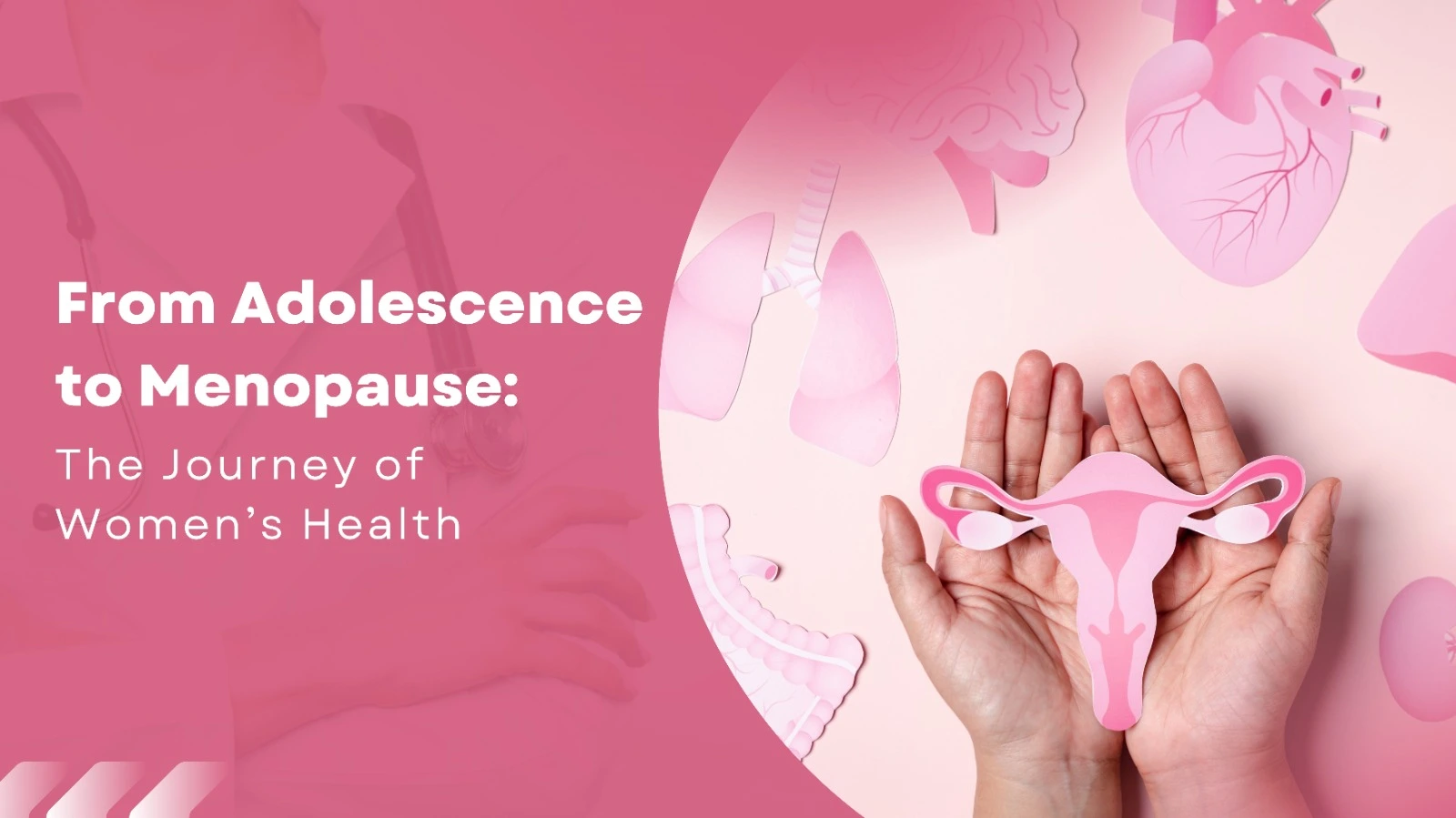
From Adolescence to Menopause The Journey of Women’s Health
Women’s health is a dynamic journey that evolves across various life stages, each marked by unique physiological, hormonal, and emotional changes. From the onset of puberty to the complexities of menopause, understanding these transitions empowers women to prioritize their well-being and embrace every phase with confidence.
This blog explores the key milestones in women’s health and provides insights into managing the challenges and opportunities they bring.
Adolescence: The Foundation of Women’s Health
Adolescence is the stage when girls transition into womanhood, marked by significant physical and emotional changes.
Key Milestones in Adolescence
- Puberty:
- Begins between ages 8 and 13, triggered by hormonal changes.
- Key signs include breast development, growth of pubic hair, and the onset of menstruation (menarche).
- Menstrual Cycle:
- Cycles may be irregular initially but usually stabilize within a few years.
- Educating young girls about menstrual hygiene and tracking cycles is crucial.
- Emotional Development:
- Hormonal fluctuations can lead to mood swings and heightened emotional sensitivity.
Common Health Concerns
- Menstrual Irregularities: Conditions like polycystic ovary syndrome (PCOS) or hypothyroidism can affect cycle regularity.
- Body Image Issues: Societal pressures often impact self-esteem and mental health.
Tips for a Healthy Adolescence
- Encourage balanced nutrition rich in calcium and iron.
- Promote open conversations about body changes and reproductive health.
- Regular physical activity supports overall well-being.
Early Adulthood: Embracing Independence and Reproductive Health
In early adulthood, women often focus on education, careers, and relationships. It is also a time to establish healthy habits and understand reproductive health.
Key Health Priorities
- Contraceptive Choices:
- Exploring options like birth control pills, IUDs, or natural methods.
- Sexual Health:
- Regular screenings for sexually transmitted infections (STIs).
- HPV vaccination to prevent cervical cancer.
- Fertility Awareness:
- Understanding ovulation cycles and fertility windows.
- Discussing family planning options with a healthcare provider.
Common Health Challenges
- Stress Management: Balancing personal and professional responsibilities.
- Reproductive Health Issues: Conditions like endometriosis or uterine fibroids may emerge.
Tips for a Healthy Early Adulthood
- Schedule annual gynecological exams.
- Prioritize mental health through mindfulness or therapy.
- Stay active and maintain a healthy weight.
Midlife: The Balancing Act
Midlife often brings a mix of personal growth and new health challenges. This phase includes the perimenopausal transition and increased focus on bone and cardiovascular health.
Key Changes During Midlife
- Perimenopause:
- Typically begins in the late 40s, lasting 4-8 years before menopause.
- Symptoms include irregular periods, hot flashes, night sweats, and mood swings.
- Bone Health:
- Estrogen levels decline, increasing the risk of osteoporosis.
- Adequate calcium and vitamin D intake are essential.
- Heart Health:
- Hormonal changes can elevate the risk of cardiovascular diseases.
Common Health Concerns
- Weight Gain: Slower metabolism and hormonal changes often contribute to weight gain.
- Mental Health: Anxiety and depression are common, requiring proactive management.
Tips for a Healthy Midlife
- Incorporate weight-bearing exercises to strengthen bones.
- Limit processed foods and focus on a heart-healthy diet.
- Seek medical advice for hormone replacement therapy (HRT) if symptoms are severe.
Menopause: A New Chapter
Menopause marks the end of a woman’s reproductive years, defined as 12 months without menstruation. For most women, this occurs around age 50.
Key Symptoms of Menopause
- Hot flashes and night sweats.
- Vaginal dryness and reduced libido.
- Sleep disturbances and fatigue.
Health Concerns During Menopause
- Osteoporosis:
- Bone density decreases, increasing fracture risk.
- Cardiovascular Diseases:
- Postmenopausal women are at higher risk of heart attacks and strokes.
- Cognitive Changes:
- Some women experience memory lapses or difficulty concentrating.
Tips for a Healthy Menopause
- Engage in regular physical activity, including yoga and stretching.
- Discuss supplementation needs with a healthcare provider.
- Stay socially active to maintain emotional well-being.
Women’s Health Across All Stages
While each life stage presents unique challenges, some universal practices support women’s health throughout their journey:
- Regular Screenings:
- Pap smears, mammograms, and bone density tests as recommended.
- Blood pressure, cholesterol, and diabetes screenings for overall health.
- Nutrition:
- A diet rich in fruits, vegetables, lean proteins, and whole grains supports hormonal balance and energy levels.
- Stay hydrated and moderate caffeine and alcohol intake.
- Exercise:
- Consistent activity reduces the risk of chronic diseases and boosts mental health.
- Mental Health:
- Seek support for anxiety, depression, or stress through counseling or support groups.
- Open Communication:
- Discuss symptoms or concerns openly with healthcare providers to address issues early.
Embracing the Journey
Women’s health is a lifelong journey of growth, resilience, and transformation. By staying informed and proactive, women can embrace each stage with confidence and vitality.
Whether you’re a teenager navigating puberty, a professional juggling career and family, or a woman approaching menopause, remember that each phase is an opportunity to prioritize your health and well-being.
